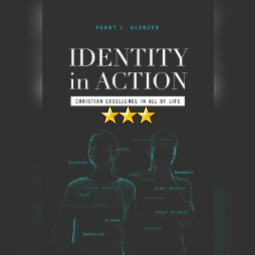Not So Excellent, But Enhances The Discussion Anyway. Up front, this book had its cool moments in that it quoted from a decently wide range of pop culture for its opening chapter quotes and even at times inside the discussion itself – you don’t usually see that in a book clearly designed for the Christian Living market. But it also lost its first star because of rampant prooftexting, a practice wherein Christian authors cite seemingly random Bible verses out of context in “proof” of their claims – and a practice which I have declared absolute war on, with my automatic star deduction being my primary review-based weapon.
The other star was lost here because this book had a potentially profound premise… that it absolutely squandered in gearing its discussion only to conservative Evangelical American Christian interests and language. Within that particular subculture, this book will likely be absolutely beloved and possibly one of those destined to be handed to new high school graduates heading to college as graduation presents every year – which can be a sales bonanza, as you’re easily talking hundreds of thousands, maybe even lowish millions, of copies every year.
But this book, with its premise of looking at Identity Politics from a new and seemingly enlightening angle, could have been *so much more*. It had the potential to be one of those books that I can take into *any* political space and urge people to read it and consider its points and make a truly persuasive case no matter the reader’s own individual politics or religious beliefs, but instead Glanzer chose to focus on what he knows and lives. Which again, isn’t an *overly* bad thing.
I can still take this into many realms and use it to talk to the moderates within them, the ones who can see past the conservative American Evangelical Christian culture this book was designed for to see the larger points Glanzer is making. And this is exactly why the book doesn’t lose any *more* stars – because once you get beyond the trappings of that particular culture, the overall points here are strong enough to deserve consideration in a much wider arena.
And ultimately, that is the saddest part of this text for this reader, that so many other readers who *could* be enlightened by it *won’t* be, specifically because of the approach entailed to discussing its overall thesis. Still, this book is recommended.
This review of Identity In Action by Perry L Glanzer was originally written on February 2, 2021.

